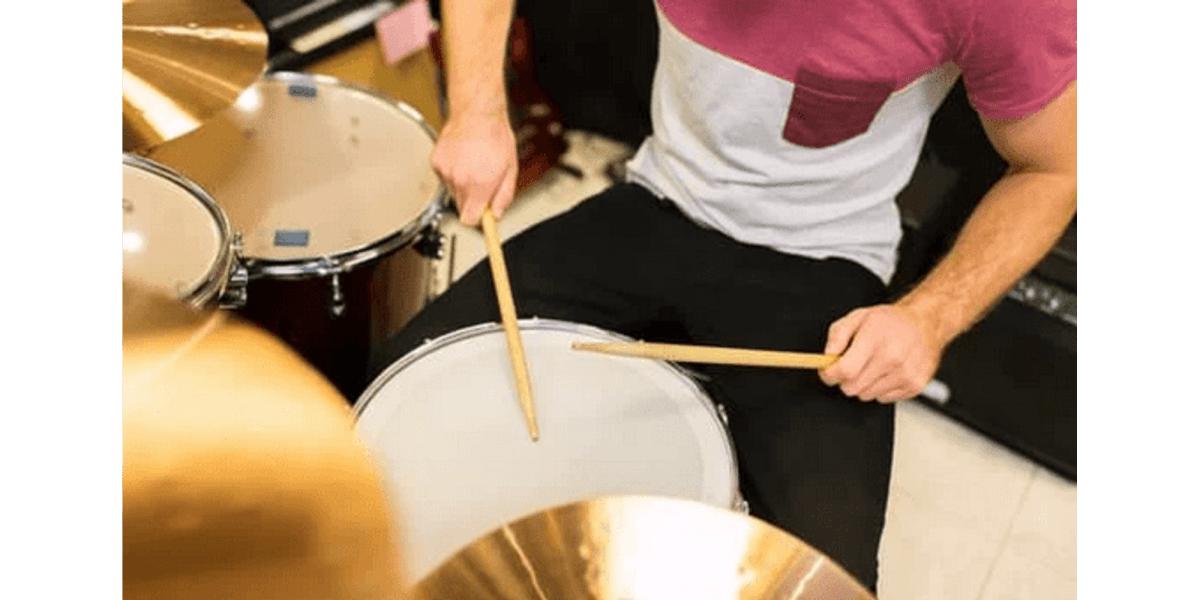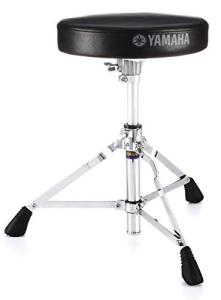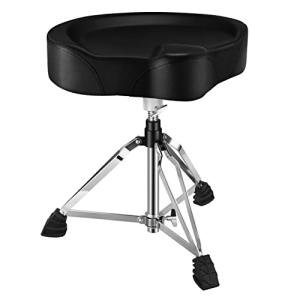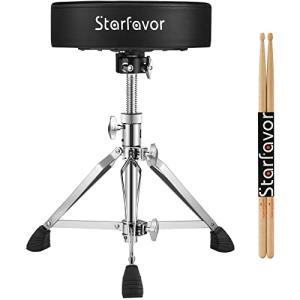A Beginner's Guide to Drumming
Are you ready to unleash your inner rhythm and make some noise? If so, then it's time to grab those drumsticks and blast off to the beat! In this beginner's guide to drumming, we'll take you through the exciting world of drums. From learning about the different types of drums and how to set up your kit, to mastering essential drumming techniques and grooves, this article has got you covered.
Whether you're a novice or have dabbled with drums, this guide will help you build a solid foundation and develop your drumming skills. We'll explore the basic rudiments, discuss tips for practicing effectively, and even offer insights into the mindset of professional drummers.
So, get ready to create thunderous beats and rock out with confidence. With our expert advice and your dedication, you'll be drumming like a pro in no time. So, let's dive in and start making some music!
Keywords: drumming, beginner's guide, types of drums, drumming techniques, grooves, practicing effectively, mindset, professional drummers, creating beats, music.

Benefits of learning to play the drums
Drumming is a truly captivating and rewarding pursuit that benefits individuals of all ages and skill levels. As a beginner drummer, you can look forward to experiencing the transformative power of this dynamic art form.
One of the primary advantages of learning to play the drums is the development of enhanced coordination and dexterity. Simultaneously operating your hands and feet while maintaining a steady rhythm requires high physical coordination and motor skills. This coordination-building exercise benefits your drumming abilities and can translate to improved overall coordination in daily life.
Moreover, drumming is an excellent way to enhance your sense of rhythm and timing. By immersing yourself in the rhythmic patterns and grooves, you'll cultivate a deeper understanding of how music is structured and how different elements come together to create a cohesive, captivating sound. This improved rhythmic awareness can positively impact your overall musicality, making you a more well-rounded and versatile musician.
Drumming techniques and styles
Drumming encompasses a vast array of techniques and styles, each with its own unique characteristics and applications. As a beginner, it's essential to familiarize yourself with the fundamental drumming techniques that form the foundation of this dynamic art form.
One of the most fundamental drumming techniques is the basic drum stroke. This encompasses various ways of striking the drum head, such as the full stroke, the tap stroke, and the push stroke. Mastering these basic strokes will provide you with the building blocks to execute more complex rhythmic patterns and grooves.
In addition to the basic drum stroke, beginner drummers should also explore rudiments, which are the building blocks of drumming. Rudiments are pre-determined sticking patterns and rhythmic exercises that help develop coordination, dexterity, and independence between the hands and feet. Common rudiments include the single-stroke roll, the double-stroke roll, and the paradiddle. Incorporating these rudiments into your practice routine will lay the groundwork for more advanced drumming techniques.
As you progress in your drumming journey, you'll have the opportunity to explore a wide range of drumming styles, each with unique rhythmic and stylistic characteristics. From the driving beats of rock and metal to the intricate polyrhythms of jazz and world music, the drumming world is a vast and diverse landscape waiting to be discovered. Familiarizing yourself with different drumming styles will broaden your musical horizons and help you develop a more versatile and well-rounded drumming skill set.
Essential drumming equipment and setup
Embarking on your drumming journey requires the right equipment and a properly set up drum kit. Understanding the essential components of a drum kit and how to configure them can make a significant difference in your playing experience and the quality of sound you produce.
The drum set is at the heart of any drum kit, and it typically includes a bass drum, snare drum, tom-toms, and cymbals. Each of these components plays a crucial role in the overall sound and functionality of the kit. As a beginner, it's important to familiarize yourself with the different sizes, materials, and features of these drum components, as they can greatly impact the tone and response of your instrument.
In addition to the drum set, drummers require a sturdy drum throne (or stool) to ensure proper posture and support during playing. The height and angle of the throne can significantly affect your playing comfort and technique, so it's essential to find the right fit for your body.
Beyond the core drum kit components, various accessories and hardware can enhance your drumming experience. These include drumsticks, drum heads, drum mufflers, and drum lugs, all of which can be tailored to your preferences and playing style. Investing in quality equipment and understanding how to set up your drum kit properly can make a difference in your drumming journey.
Beginner drumming exercises and drills
As a beginner drummer, establishing a solid foundation through dedicated practice and mastering essential exercises and drills is crucial. These fundamental building blocks will help you develop the necessary skills and instill the discipline and muscle memory required to progress.
Basic drum rudiments are one of the most important exercises for beginner drummers. As mentioned earlier, rudiments are pre-determined sticking patterns that are the foundation for more complex rhythmic structures. Mastering rudiments such as the single-stroke roll, the double-stroke roll, and the paradiddle will provide you with the coordination and agility needed to execute more advanced drumming techniques.
In addition to rudiments, beginner drummers should also focus on developing their timing and groove through basic beats and rhythms. Start with the simple quarter note beat, then progress to more complex time signatures and rhythmic patterns. Practicing these fundamental grooves will help you internalize the feel and flow of drumming, ultimately leading to a more natural and confident performance.
Another crucial aspect of beginner drumming is the development of hand and foot independence. Exercises that challenge you to maintain a steady beat with one hand or foot while playing a different rhythm with the other can greatly enhance your coordination and overall drumming proficiency. Incorporating these independence-building exercises into your practice routine will pave the way for more intricate and versatile drumming.
Finding a drum teacher or online resources
As a beginner drummer, having access to reliable and knowledgeable guidance can significantly improve your progress and overall drumming development. Whether you work with a local drum instructor or explore the online resources available, numerous avenues exist to help you on your drumming journey.
Working with a drum teacher in person or through online lessons can provide invaluable insights and personalized feedback. A skilled instructor can help you identify and address any technical or musical weaknesses while guiding you through the fundamentals of drumming and tailoring your practice routine to your specific needs and goals. A drum teacher's one-on-one interaction and hands-on guidance can be particularly beneficial for beginners, as they can help you develop proper technique and avoid forming bad habits.
In addition to working with a drum teacher, a vast array of online resources are available to support your drumming education. From instructional videos and online drum lessons to educational blogs and drum forums, the internet offers a wealth of information and guidance for drummers of all levels. Exploring these online resources can supplement your learning, provide additional perspectives and techniques, and help you stay motivated and inspired on your drumming journey.
Whether you work with a drum teacher or dive into the online drumming community, the key is finding the approach that best suits your learning style and personal preferences. You can unlock your drumming potential with guidance and resources and embark on an exciting and rewarding musical adventure.
Joining a drumming community or band
As a beginner drummer, immersing yourself in a supportive and collaborative drumming community can be a game-changer in your musical journey. By connecting with other drummers, you'll have the opportunity to learn from their experiences, receive valuable feedback, and find inspiration to continue honing your craft.
One of the most rewarding ways to engage with a drumming community is by joining a local drum circle or percussion ensemble. These gatherings provide a welcoming and inclusive environment for drummers of all skill levels to come together, explore different rhythms and styles, and engage in collective music-making. Participating in a drum circle can not only improve your drumming skills but also foster a sense of camaraderie and shared passion for the art of percussion.
Another way to immerse yourself in a drumming community is by joining a local band or ensemble. Whether it's a school band, a community music group, or a garage band, playing alongside other musicians can be an incredibly enriching experience. You can apply your drumming skills in a real-world setting and learn valuable lessons about teamwork, communication, and the art of musical collaboration. The feedback and support you receive from your bandmates can be invaluable in shaping your drumming development.
In addition to local communities, the internet has also facilitated the growth of vibrant online drumming communities. Platforms like social media, drum forums, and online drum communities allow drummers to connect with like-minded individuals from around the world, share insights, and engage in virtual drum jams and online collaborations. Participating in these online communities can help you stay motivated, inspired, and connected to the broader drumming landscape.
Overcoming common challenges in drumming
As with any new skill, the journey of learning to play the drums is not without its challenges. However, with the right mindset and strategies, these obstacles can be overcome, and you can continue to progress on your drumming journey.
One of the most common challenges beginner drummers face is developing coordination and independence between the hands and feet. Executing complex rhythmic patterns while maintaining a steady beat can be daunting, especially in the early stages of learning. To overcome this challenge, it's essential to approach coordination-building exercises and drills with patience, persistence, and a focus on incremental progress. Break down the patterns into smaller, manageable chunks, gradually increasing the complexity as your skills improve.
Another common challenge for beginner drummers is developing consistent timing and groove. Maintaining a steady, in-the-pocket groove can be a significant hurdle, particularly when faced with the complexities of different time signatures and rhythmic patterns. To address this challenge, incorporate metronome practice into your routine, focusing on keeping a steady pulse and aligning your playing with the click. Additionally, exploring different genres and styles can help you better understand groove and timing.
Lastly, many beginner drummers struggle with the physical demands of drumming, such as hand and wrist fatigue, muscle soreness, and the development of proper technique. To overcome these physical challenges, focusing on proper posture, grip, and stroke technique is crucial. Incorporate warm-up exercises, stretch regularly, and be mindful of your body's limitations. Gradually increase the duration and intensity of your practice sessions, and don't be afraid to take breaks when needed to prevent injury and burnout.
By approaching these common challenges with a positive mindset, a willingness to practice consistently, and a commitment to proper technique, you can overcome the obstacles and continue to progress on your drumming journey. Remember, every drummer faces these challenges, and with dedication and perseverance, you can emerge as a confident and skilled drummer.
Drumming as a form of self-expression and stress relief
Drumming is a captivating musical pursuit and a powerful tool for self-expression and stress relief. As a beginner drummer, you'll soon discover the transformative power of this art form and how it can positively impact your overall well-being.
At its core, drumming is a deeply personal and expressive experience. Creating rhythms, exploring different styles, and finding your voice on the drums can be profoundly cathartic and liberating. As you progress in your drumming journey, you'll have the opportunity to tap into your emotions, channel your creativity, and convey your inner feelings through the language of percussion. This self-expression can be incredibly empowering, fostering greater self-awareness and personal growth.
In addition to its expressive qualities, drumming has been recognized for its therapeutic benefits in reducing stress and promoting mental well-being. The physical act of playing the drums can have a calming and meditative effect, as the focus required to maintain a steady rhythm and execute complex patterns can help quiet the mind and alleviate feelings of anxiety or tension. The rhythmic and repetitive nature of drumming can also induce a state of flow, where you become deeply immersed in the present moment and experience heightened focus and clarity.
Furthermore, the social aspect of drumming can also contribute to its stress-relieving properties. Group drumming activities, such as drum circles or ensemble performances, can foster community, camaraderie, and shared purpose. This social connection and the experience of collective music-making can profoundly impact one's mental and emotional well-being, providing an outlet for self-expression and a means of stress reduction.
As you embark on your drumming journey, embrace the opportunity to not only develop your musical skills but also to explore the profound personal and emotional benefits that this art form can offer. Whether you want to express yourself, find a sense of calm and balance, or simply enjoy the thrill of creating rhythmic music, drumming can be a transformative and enriching experience.
Conclusion and encouragement to start drumming
In conclusion, learning to play the drums is a truly rewarding and transformative experience that offers a multitude of benefits for beginners and seasoned drummers alike. From developing enhanced coordination and a deeper understanding of rhythm to discovering a powerful outlet for self-expression and stress relief, the art of drumming has the potential to enrich your life in countless ways.
Whether you're a complete novice or someone who has dabbled with drums before, now is the perfect time to dive into the world of percussion and unleash your inner rhythm. With the right guidance, dedication, and willingness to embrace the challenges, you can embark on an exciting and fulfilling drumming journey that will impact your life.
So, what are you waiting for? Grab those drumsticks, find a suitable drum kit, and get ready to blast off to the beat! With our comprehensive beginner's guide as your roadmap, you'll be well on your way to becoming a confident and accomplished drummer, ready to create thunderous rhythms and captivate audiences with your musical prowess.
Remember, the joy of drumming lies not only in the final performance but also in the process of growth, self-discovery, and the cultivation of a lifelong passion. Embrace the challenges, celebrate your successes, and, most importantly, have fun on this incredible musical adventure. The drumming world is waiting for you – it's time to make some noise and let your rhythm take center stage!
DISCLAIMER
The information contained on Percussion Pros website and our related pages is provided for entertainment and informational purposes only. It is not intended as a substitute for the advice of or treatment that your physician or other health care provider may prescribe.
Understand that you are solely responsible for the way this information is perceived and utilized, and do so at your own risk. In no way will Percussion Pros be responsible for injuries or other problems that might occur due to the use of this website or any actions taken based on the content of this website. Save on Sneaks will not be held responsible for the conduct of any companies and websites recommended within this site.








